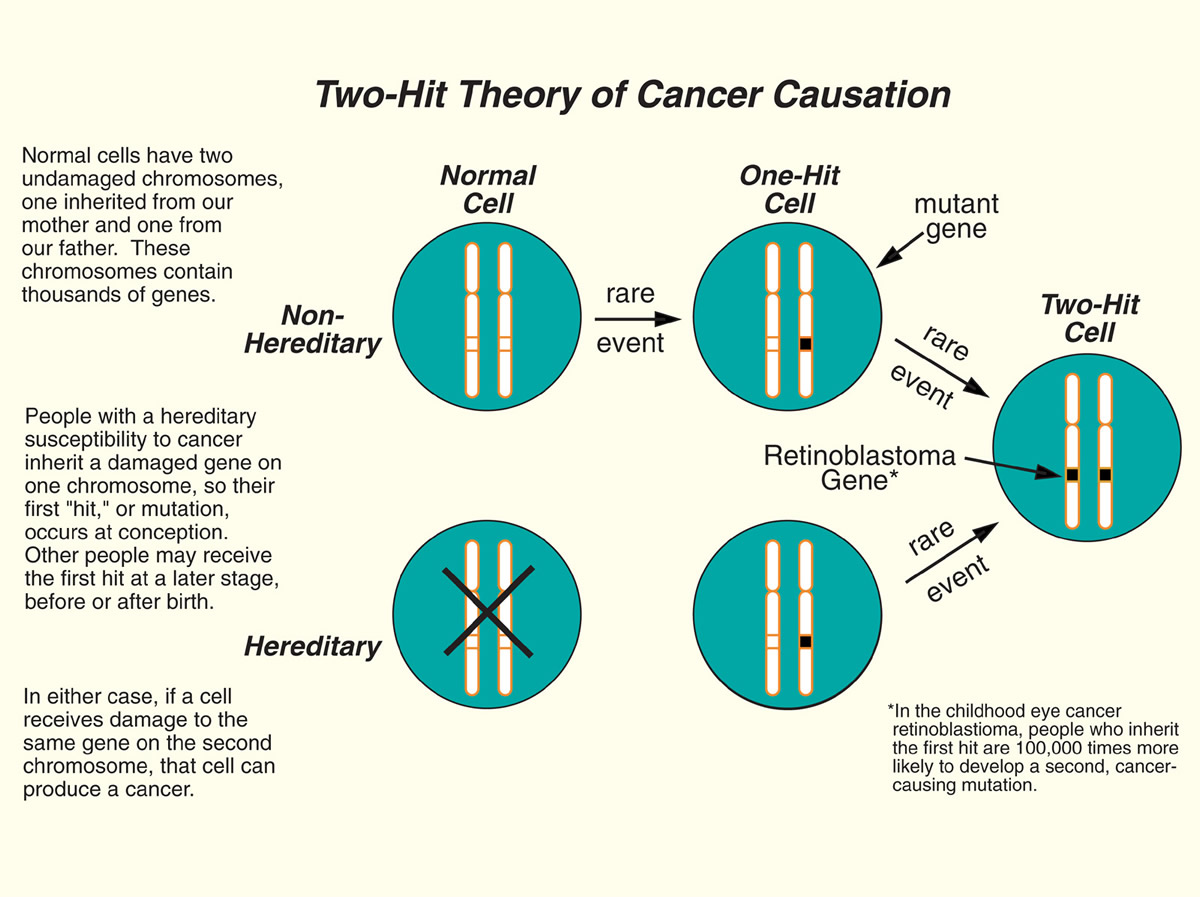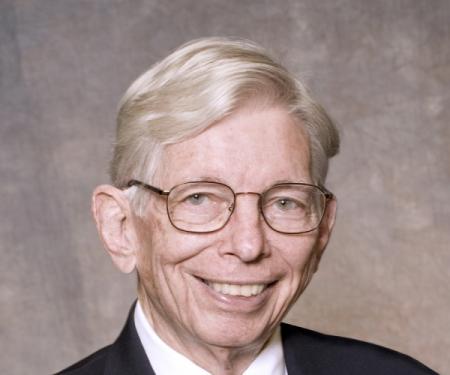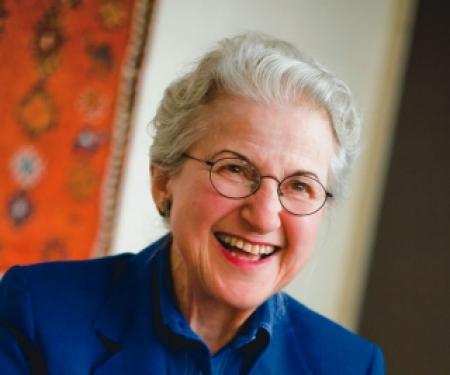Weather Alert: Fox Chase remains open, though some appointments or services may be adjusted. Patients will be contacted directly if their visit is affected. Please check Foxchase.org for updates and monitor myTempleHealth for changes to scheduled appointments.
Breadcrumb
- Home
- About Us
- History
- Discoveries
- Knudson's "Two-Hit" Theory of Cancer Causation
Knudson's "Two-Hit" Theory of Cancer Causation

The "two-hit" hypothesis provided a unifying model for understanding cancer that occurs in individuals who carry a "susceptibility gene" and cancers that develop because of randomly induced mutations in otherwise normal genes. Tumor-suppressor genes, in particular, are important targets for cancer prevention research, since they normally function to apply the brakes to cellular growth.
Like many significant conceptual leaps in science, Knudson's "two-hit" hypothesis was met with skepticism when he first published it in 1971, yet Knudson's powerful insights into the development of cancer hold implications for both cancer treatment and prevention.
Defects in tumor-suppressor genes permit abnormal, cancerous growth, so devising ways to remedy such flaws or replace the gene's missing product through medication are of interest to researchers.
Alfred G. Knudson Jr., MD, PhD
A geneticist and physician, Dr. Knudson (August 9, 1922 – July 10, 2016) was internationally recognized for his "two-hit" theory of cancer causation, which explained the relationship between the hereditary and non-hereditary forms of a cancer and predicted the existence of tumor-suppressor genes that can suppress cancer cell growth. This now-confirmed theory has advanced understanding of errors in the genetic program that turn normal cells into cancer cells.
Distinguished Awards
Among Knudson's many professional distinctions, he received the 2004 Kyoto Prize, considered among the world's leading awards for lifetime achievement. He also earned the 1998 Albert Lasker Award for Clinical Medical Research, one of seven Lasker Awards presented that year. Considered "America's Nobels," Lasker Awards rank among the highest recognition for careers of distinguished work because of the extremely rigorous process of nomination and selection conducted by a jury of the world's top scientists.
In 1999, Knudson received the Distinguished Career Award of the American Society of Hematology/Oncology and the international John Scott Award from the City of Philadelphia. In 2000, the American Academy of Dermatology honored him with its Lila Gruber Memorial Cancer Research Award for researchers whose lifetime contributions have been outstanding in importance and distinction.
When Dr. Knudson became an AACR honorary member in 2011 he reviewed his distinguished career, and his most significant accomplishments that laid the groundwork for the tumor suppressor concept, in an interview with AACR News.
In September 2002, Knudson received Fox Chase Cancer Center's 14th annual Wick R. Williams Memorial Award. The American Society of Clinical Oncology also honored him with its 2002 Special Award in the form of a Pediatric Oncology Lectureship recognizing individuals who are accomplished in pediatric oncology.
In addition, Knudson has received the 1988 Charles S. Mott Prize of the General Motors Cancer Research Foundation; the American Cancer Society's 1989 Medal of Honor; the 1990 Founders' Award of the Chemical Industry Institute for Toxicology; the American Radium Society's 1990 Janeway Medal; Memorial Sloan-Kettering Cancer Center's 1990 Katharine Berkan Judd Award; the 1991 William Allan Memorial Award of the American Society of Human Genetics; M. D. Anderson Cancer Center's 1995 Bertner Award; Switzerland's 1995 Charles Rodolphe Brupbacher Foundation Award; the 1996 Robert J. and Claire Pasarow Foundation Award; the 1996 Durham City of Medicine Award; Canada's 1997 Gairdner Foundation International Award; and the American Society of Clinical Oncology's 1997 Karnofsky Memorial Lecture Award.
Knudson's Background and Education
Born in Los Angeles in 1922, Knudson received his BS from California Institute of Technology in 1944, his MD from Columbia University in 1947 and his PhD from California Institute of Technology in 1956. He held a Guggenheim fellowship from 1953 to 1954.
Knudson came to Fox Chase from the University of Texas Graduate School of Biomedical Sciences, where he was dean, and the M.D. Anderson Hospital and Tumor Institute in Houston, Texas, where he specialized in pediatrics and biology. Previously, he was associate dean for basic sciences at the State University of New York at Stony Brook from 1966 to 1969. He began his affiliation with Fox Chase in 1970 as a member of its scientific advisory committee before joining the Center staff in 1976.
Knudson and his wife, Anna T. Meadows, MD, a pediatric oncologist at Children's Hospital of Philadelphia, collaborated on the study of the genetics of childhood cancer.
He died July 10, 2016.
Career Highlights
Dr. Knudson became an honorary member of the American Association for Cancer Research (AACR) in 2011, and an inaugural Fellow of the AACR Academy in March 2013.
In honor of his contributions to biomedical science, Knudson has been elected to the National Academy of Sciences and was named a Fox Chase Distinguished Scientist and senior advisor to the president in 1992. He was instrumental as a leader of Fox Chase's molecular oncology program from 1989 to 1999. Previously, Knudson served as director of Fox Chase's Institute for Cancer Research from 1976 until 1982, Center president from 1980 to 1982 and scientific director from 1982 to 1983.
In 1995, Knudson was appointed as special advisor to Dr. Richard Klausner, then director of the National Cancer Institute. While continuing his work at Fox Chase, Knudson also worked closely with Dr. Joseph Fraumeni in NCI's Division of Cancer Epidemiology and Genetics. Knudson served as acting director of its human genetics program until September 1999, when he returned to Fox Chase full-time.
On March 5, 2013, Alfred G. Knudson, Jr., MD, PhD, sat down with Tacey Rosolowski, PhD, for a discussion about his career at the University of Texas MD Anderson Cancer Center. The interview was one of the events to commemorate the fiftieth anniversary of The University of Texas Graduate School of Biomedical Sciences at Houston (GSBS). In his interview, Dr. Knudson discusses his educational background, military service during the Korean War, and his early experience with pediatric cancer patients. Dr. Knudson talks about how he arrived at his theory of the two-hit theory of cancer causation.

